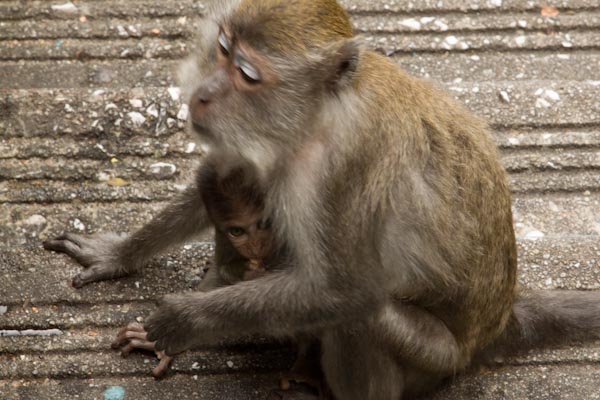
Something that been has stuck in my thoughts after a recent chat with a friend – the idea that “introverts are shy”. We were talking about the Life Coaching sessions I’ve been doing, and personality sorters such as Myers-Briggs, where I came out as an ‘ISTJ’ after the assessment – so it’s official, I’m “introverted”.
But shyness has very little to do with being an introvert.
I hadn’t realised people believed that if someone was an introvert they typically don’t like people and would rather be alone, closeted up reading self-help books, playing computer games and blogging.
But there’s really more to us introverts than that.
What is an introvert?
I can only speak authoritatively for myself, but given the MBTI definitions I can perhaps speak in some general terms.
Introverts draw their energy from their inner world.
Introverts like to take time to mull things over; to reflect; to study the various angles on a subject before doing anything with it. If you put me on the spot and I must respond immediately, it’ll be uncomfortable for me – I want time to process and order my thoughts.
How can you spot an introvert?
In a room full of strangers, such as a party, introverts will be the first to feel uncomfortable and leave earlier that any one else. Or, they will find other introverts with whom to ride out “the storm”.
As introverts we find our energy from inside and get tired quickly with repeated and sustained periods in the company of other people, especially extroverts. This is a general statement since introverts are happy to spend time with close friends (introverts and extroverts alike). Introverts focus socially on the depth of relationships, while extroverts are focused more on breadth.
Introverts run the risk, myself included, of too much inner reflection and not enough action. I’m a sucker for analysis paralysis – rarely looking to outside assistance for help to move me along. A trap I fall into quickly is assuming my internal analyses are sufficient, and there’s no need to consult the world about it.
At best, these are tendencies and there is a broad scale between the 2 extremes.
I have recently tried to overcome some of the deficiencies. I’ve tried things like life coaching and pushing myself into action by signing up for classes and events. I feel that once I’ve committed, my ‘J‘-side (ISTJ) kicks in and forces me to follow through.
It’s working, and helps to teach me skills that I’ve neglected when my introverted tendencies cause inertia.
What is shyness and is it the same as introversion?
Shyness is a product of the ego.
To be shy is the opposite to those who are boisterous, outgoing, and seemingly super-confident. But ultimately they both have the same root. From Eckhart Tolle’s book I’ll refer once again:
A shy person who is afraid of the attention of others is not free of ego, but has an ambivalent ego that both wants and fears attention from others. The fear is that the attention may take the form of disapproval or criticism, that is to say, something that diminishes the sense of self rather than enhances it. So the shy person’s fear of attention is greater than his or her need of attention.
To say that people who appear to be over-confident and cocky are carrying around a stack of ego is easy to do. But it can be a more challenging to see the workings of the ego in someone who is shy. It is there none-the-less.
Basically, shyness is a product of our ego, while being introvert is simply a personality trait that makes such people seek out fewer, but deeper relationships.
Shyness serves as another example that illustrates the presence of ego in so much of what we do, and who we present to the world.
Finding the balance between the 2 extremes of intro- and extroversion
Extroverts and introverts have typical character traits that that stand the two apart – you’re not likely meet many shy extroverts since they are energized through action and interaction. Extroverts developed the skills necessary to ensure that they get what they need.
While the two personality types are polar opposites, interestingly they can arrive at the same problem but from different directions. Consider the following example…
I mentioned above that introverts risk being over-reflective and not taking action because of indecision and excessive analysis. Extroverts can reach the same impasse too by seeking too much advice and not trusting themselves to make the final decision. Extroverts get lost in deliberation by having too many external opinions and influence.
If each personality type would try to adopt some of the skills honed by the other, we could achieve a better balance in our lives.
Certain tendencies will always exist in your character, but there’s no harm in stepping outside your comfort zone. Being outside our comfort zone is where we learn best about ourselves and hopefully leads us to a more balanced character.
What type are you?
If you’re interested in finding out whether your extrovert or introvert, you can do the MBTI test here. Knowing where you stand so you at least have some idea of your basic character tendencies is helpful so you can develop and try to strike a better balance in your life.
Let me know what you think about my opinions on introvert and shy. Are you a shy introvert? Are you a shy extrovert even? I’d be happy to hear what you think. Please feel free to comment below, and if you liked this article, please also click the button below to share it with friends.
Thank you for reading.
{ 0 comments… add one now }
{ 5 trackbacks }